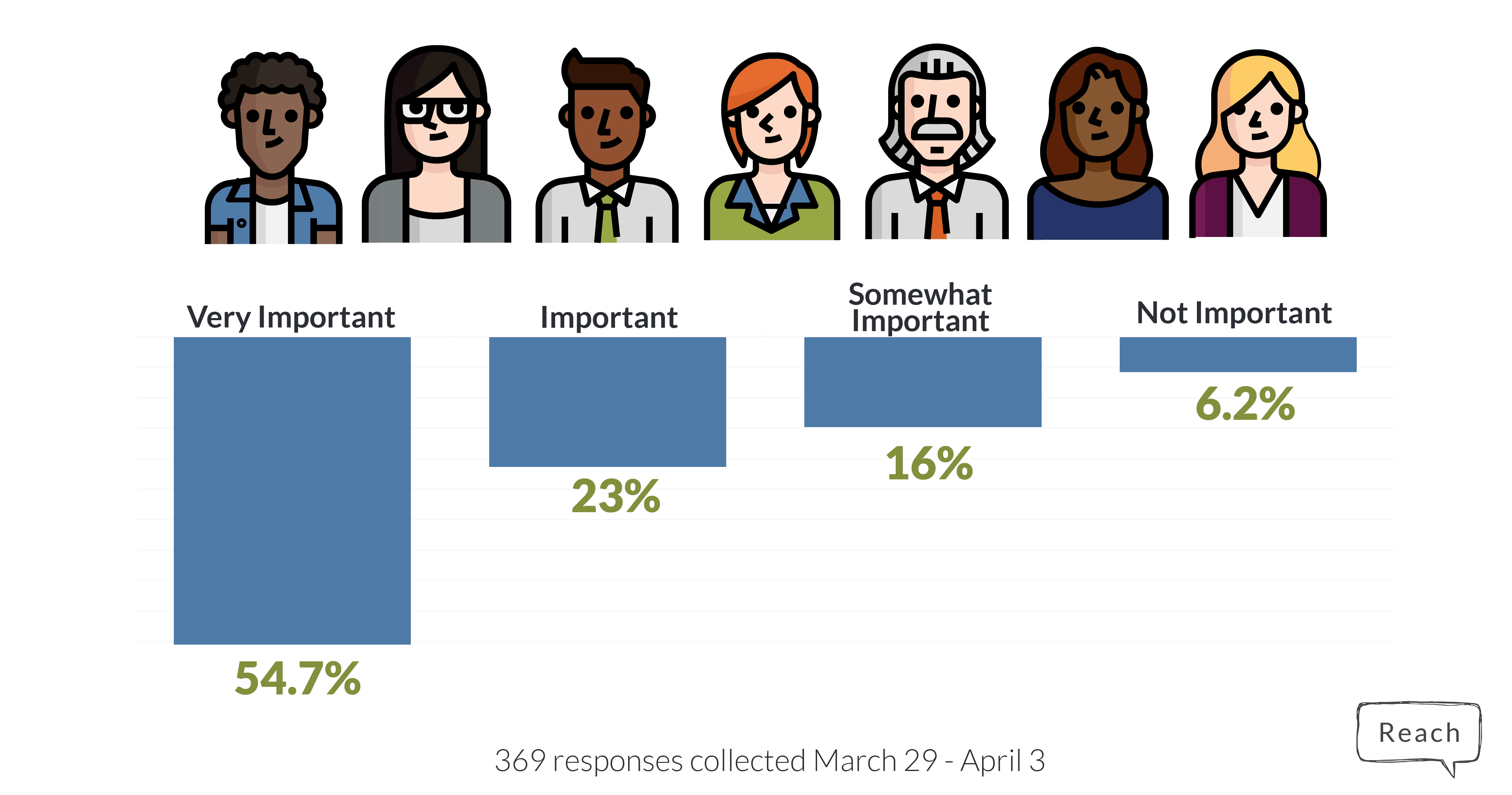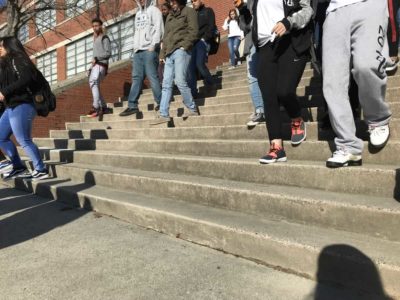

EducationNC recently released a Teaching-in-color series, which included news articles examining teacher diversity (Did you know 80 percent of North Carolina’s teachers are white?) and shared Latinx and undocumented teacher perspectives.
With this topic in mind, Reach NC Voices asked North Carolinians for their opinion in our March 29 Reach Roundup newsletter. We posed the question: “Do you think it’s important for the teacher workforce to be as diverse as the student population?” Response options included: very important, important, somewhat important, or not important.
Here’s the breakdown of how participants answered our question as well as some of the comments we received.


“Many students need role models who look like them. More than anything though, we need the highest quality teachers we can find! High quality teachers can be role models to any student they teach.”
Teacher from Greenville
“Staffing decisions should be made based upon the quality of the candidate. Whether someone is African-American, Asian, Caucasian, etc does not matter.”
Teacher from Raleigh
“Diversity in educators is essential. More African-American and Hispanic male teachers are needed as role models for all our students.”
Respondent from Greensboro
“Let me be blunt. White students need to have experiences with authority figures who are not white.”
Teacher from Chatham County
Interested in participating in Reach NC Voices? You can sign up to share your thoughts on our weekly questions. We’d love to hear from you!


